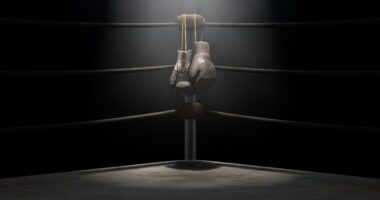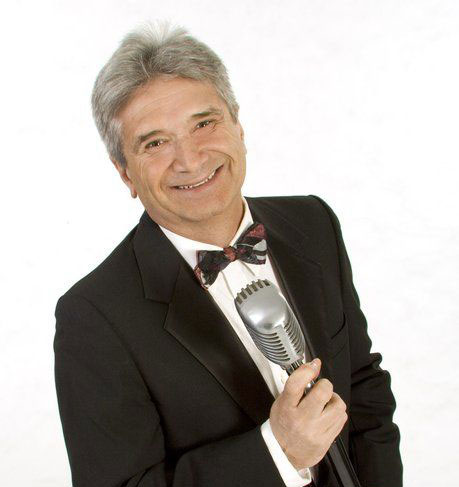Championship Flight: A Trip Through Atlantic's City's Elite Boxing History, Part 2


This is the second of a two-part series looking at the storied history of pro boxing and Atlantic City casinos.
How did boxing and casinos change amid the market conditions and competing interests in Atlantic City?
Those questions will be answered in rounds 7-12.
We pick up after Donald Trump’s (yes, the former US president) 1991 hosting of Evander Holyfield-George Foreman brought an end to Atlantic City’s first boxing heyday.
He decided against doing it again, saying other properties should share in the risk.
Round 7: Atlantic City casino collaboration
Throughout the 1990s, Atlantic City casinos occasionally banded together to bring an event here. This was always tricky, as properties furthest from the center of town couldn’t easily send customers to Jim Whelan Boardwalk Hall and risked losing their play to nearby Caesars, Trump Plaza and Bally’s.
And then came Arturo Gatti. Bally’s executive Ken Condon, teaming with promoter Kathy Duva, brought the Gatti era here.
Casinos opted for the piggy-back routine, purchasing blocks of tickets for their preferred players. The risk belonged to someone else, the reward was shared.
The era ended with Gatti’s career, although some notable encores included fighters like Kelly Pavlik, Philadelphia’s Bernard Hopkins and Sergey Kovalev, who brought enthusiastic fan bases to witness fights and then gamble.
Round 8: New entertainment trends changed the landscape
Hard Rock Hotel & Casino hosts several Cage Fury Fighting Championships every year.
And these events appeal to a younger demographic of players, who not only take in the entertainment menu but can often gamble on the event via NJ sports betting apps.
“There are more options now to the combat sports customer,” Mike Woodside, the VP of entertainment and marketing for Hard Rock Atlantic City, told Play NJ. “Atlantic City as a whole is a great destination for boxing, but it has taken a hit because it is now in a crowded space.
“There are more options now to the combat sports customer.
“We have a diversity of programming for our players, whether that’s comedy, live music, entertainment, etc.,” he added. “ We also have a great venue for our MMA events.”
A younger crowd, which emphasizes the night life as much as the gaming tables, indicates the need for a different entertainment form.
They can gamble on their apps for legalized sporting events and often prefer a card with several short fights over a pair of 10 and 12-round affairs. In the Internet and socially-connected age, they view many main events as too long.
Round 9: Bean counters impact mature Atlantic City market
It forms the basis of every mature market, like Atlantic City, which launched its gambling life in 1978.
For a long honeymoon period, casinos used boxing to broadcast their presence to the world. It was loss-leader. Not every event was monitored for its profitability.
Some, in fact, took place because a single high roller wanted it.
That gradually changed.
Site fees casinos paid to promoters eventually became “four-wall deals,” in which the operator gave the promoter use of a room and retained some tickets for themselves.
Promoters took their Atlantic City blueprint to emerging markets like Tribal Gaming facilities. Foxwoods, Mohegan Sun and others did the same thing.
Round 10: Fighters go to where they have rabid boxing fan bases
Canelo Alvarez can form a monstrous line outside of a theater three hours before a weigh-in for one of his fights in Las Vegas. His appeal to the Hispanic fan base in the Southwest can’t be matched in most places around the globe.
Thousands of dollars can be spent on drink tickets for people waiting in line to see two boxers get on a scale. And say a few words. That’s it.
This is the market reality. Just as Tyson’s New York roots helped his appeal here, as did Gatti’s following in Jersey City, Canelo appeals to the Hispanic fan base that carries boxing now.
Being a native of Mexico, he invariably draws record crowds by fighting on Cinco de Mayo weekend in May and Mexican Independence Day weekend in September.
There are no East Coast fighters with that marquee right now for the Atlantic City market.
Round 11: The Boardwalk Hall boxing perspective
Jim McDonald, the general manager of Boardwalk Hall and the Convention Center, believes that at least part of the route Gatti took to the major stage can be replicated.
“We’ve noticed a resurrection in boxing and have been talking to multiple groups that would like to bring boxing back here,” he told Play NJ. “Remember that Gatti didn’t start in the main room. He started out of the theater and then moved out to the big room.”
Besides the main space, the Adrian Philips Theater can hold 1,000 to 3,200 people, depending on the event layout. And patrons access the space via the main Boardwalk Hall entrance.
“You could build a fighter out of the building this way. The people who would like to do this need to have casino partners with them.
“Boxing is electric in this building,” added McDonald, who attended fights in storied Philadelphia arenas like the Blue Horizon and then took rides down here to watch fights. “There is nothing like the atmosphere of a major fight here. It’s perfect.”
Round 12: Be happy it happened once
Boxing will always be a product of the overall entertainment marketplace here.
But its smaller role should not diminish the accomplishment that’s magical, even if it happens once.
Boxing and the casino industry propelled each other in the 1980s. Casinos gave boxing more outlets for its fighters and the sport brought notoriety and gamblers to the resort.
On one occasion during the 1982 NFL strike, two nationally-televised fights unfolded simultaneously from two neighboring Atlantic City properties. The Tuesday Night fights at the Tropicana brought weekly busloads of customers to town. Buster Douglas fought on them, before he later scored that reverberating upset over Tyson.
The era was a product of two industries that could afford to expand their reach without much economic risk.
Will the monster fights return?
The direct answer is it’s no more likely than Atlantic City turning back the clock to reclaim its place with Las Vegas as the nation’s two lone gaming destinations before gambling expanded beyond New Jersey and Nevada.
But indirectly, as long as there are casinos, there will be a natural link between Atlantic City and the sweet science.







